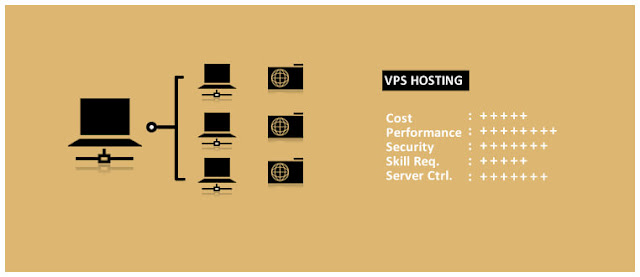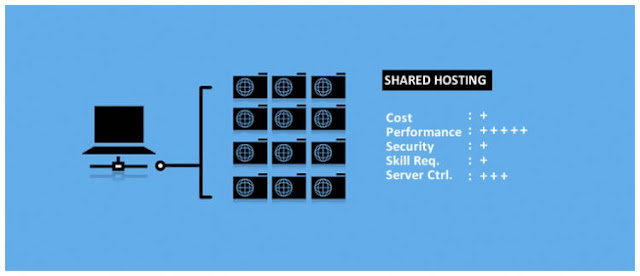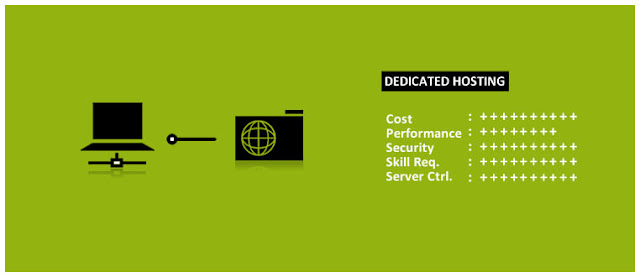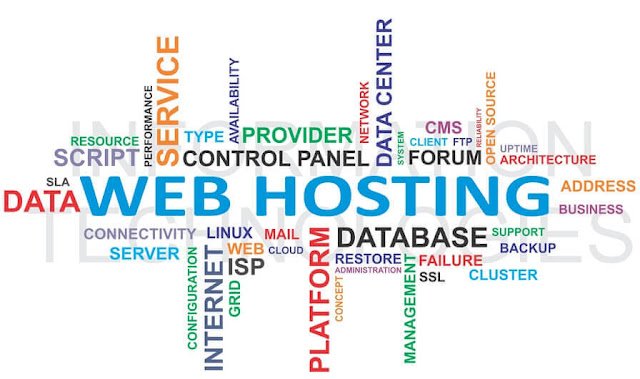In the previous article, we discussed about Hosting and domain name and their functionality.In this article I will explain the types of Hosting,their uses,application and how they differ from each other.
But in general,there are 4 types of web hosting.They are Shared Hosting,Virtual Private Server (VPS) Hosting,Dedicated Hosting and Cloud Hosting.
While all types of hosting servers will act as a storage centre for your website, they differ in the amount of storage capacity, control, technical knowledge requirement, server speed, and reliability.
Let’s have a look at the main differences between a shared, VPS, dedicated, and cloud hosting.
1. Shared Hosting
Shared web hosting is the most common type of web hosting, and is also the easiest to start out on. Shared hosting is a service where one server is shared between many customers. This typically offers the following advantages and disadvantages:
- It’s cheaper – you don’t need to pay for the whole server upfront.
- It’s easier to use – the server is preconfigured with the most popular options and your hosting company will take care of any maintenance and security updates for you.
- You share the server resources with your neighbors – if one site becomes really busy it may affect (and slow down) all other sites on that server.
- It can be less flexible – like living in a shared apartment block your neighbors need to be considered. Similar to exclusions on keeping pets or throwing wild parties (but less fun), you probably won’t be able to block a specific port or modify a core component.
- Because shared web hosting is the most common type of web hosting, most hosting companies simply refer to it as web hosting or website hosting.
No root access, limited ability to handle high traffic levels or spikes, site performance can be affected by other sites on the same server.
2. Virtual Private Server (VPS) Hosting

Also known as Virtual Dedicated Server.VPS hosting is a type of web hosting that uses Virtual Private Servers. Although the websites are hosted on the same physical machine, VPS allows each website to be fully independent as if each were on its own separate machine.
Somewhere between shared hosting (a lot of people on one server) and dedicated hosting (one account on a server), is Virtual Private Server (VPS) hosting. In this model you have your own dedicated server, but the server is a virtual machine, not a physical one.
This provides a mix of the benefits (and disadvantages) of both shared and dedicated hosting plans.
With VPS hosting, you have complete control over the environment, just as you would with a dedicated server. This is especially helpful if you are developing custom applications or are running a SaaS (software-as-as-service) business.
You generally have much more access to server resources with VPS hosting as compared to shared hosting. While the various virtual machines are all sharing server resources, there are usually many fewer of them on a server in a VPS environment. You are alloted a much larger portion of the overall computing power and bandwidth.
There also many fewer security issues. VPS accounts have their IP address, and the virtualization layer means that you are insulated from any problems that might arise from problems on other sites.
Disadvantages:
Limited ability to handle high traffic levels or spikes, your site performance can still be somewhat affected by other sites on the server.
3. Dedicated Server Hosting
4. Cloud Hosting
- Get the most flexibility – cloud servers provide the most flexible environment available in the hosting sphere.
- The cloud adapts to physical hardware problems and puts your site in a reliable location automatically. It also offers a fast and seamless upgrade option for those times when website traffic gets high.
- Your website will have dedicated resources – with dedicated bandwidth, CPU and memory. So even though you are sharing server equipment with your neighbors, you are not sharing the resources that you purchased. That way, those high traffic neighbors sharing the same equipment won’t be stealing your server resources when you need them for your business.
- Fewer websites occupy the same server – your website will have more resources at its disposal than shared web hosting.
- Freedom to configure your server – the virtualization software provides much more freedom to make your server they way you want it; but it also assumes a higher level of technical experience.
Here is a list on Other Hosting Types.









Nice information shared, nowadays hosting is very much significant so we need to know the important aspects of hosting so that we can easily grab the industry easily.
Linux Server
Thank you for sharing your thoughts and knowledge on this topic. This is really helpful and informative, as this gave me more insight to create more ideas and solutions for my plan. I would love to see more updates from you.
Web Hosting Services